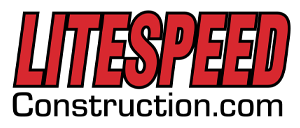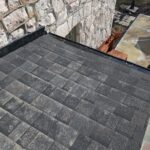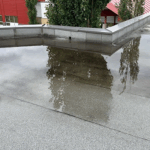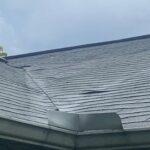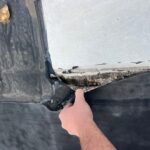What Steps Should I Take If My Roof Starts Leaking?
When it comes to maintaining your home, the roof is one of the most critical components. It shields you from the elements, ensures energy efficiency, and contributes significantly to your property’s overall value.
Given its importance, regular roof inspections are essential, especially if you live in a state like North Carolina, where the weather can be unpredictable. But how much is a roof inspection in North Carolina?
This blog will delve into the factors affecting roof inspection cost in NC, what you can expect during an inspection, and why it’s a worthwhile investment.
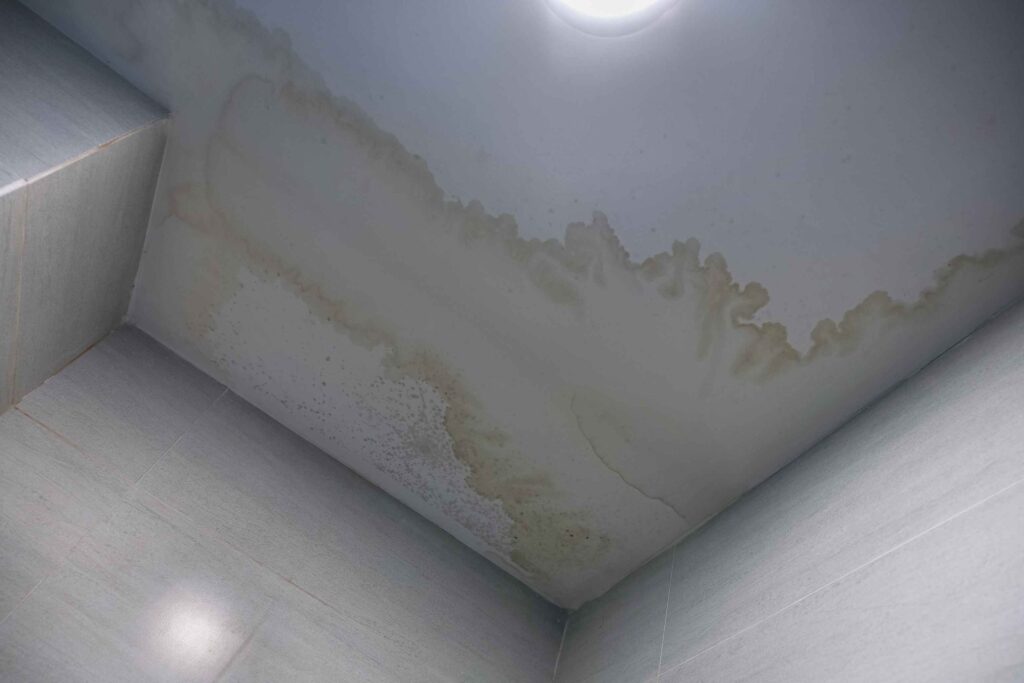
Step 1: Identify and Assess the Leak
If you suspect your roof starts leaking, the first step is to identify and assess the leak. Detecting a leak early is crucial; according to the National Roofing Contractors Association (NRCA), water intrusion can cause extensive damage to the home’s structure, leading to mold growth, wood rot, and insulation damage.
Signs Your Roof May Be Leaking:
– Water stains on ceilings or walls
– Mold or mildew in the attic
– Soft spots on interior drywall
– Dripping sounds during or after rainfall
If you observe these signs, use a flashlight and inspect the attic during or after rain. Look for moisture, stains, or drips along the roof decking and beams.
Common Leak Causes:
– Damaged shingles or tiles: Wind or hail can crack and lift shingles, allowing water to penetrate.
– Clogged gutters: Blockages can lead to standing water, causing overflow and eventual leakage.
– Flashing issues: Flashing around chimneys, vents, and skylights can deteriorate or separate from the roof, creating entry points for water.
– Old age: Roofs nearing the end of their lifespan often develop leaks as materials deteriorate.
Step 2: Contain the Leak to Prevent Damage
When a roof starts leaking, containing it should be a top priority to avoid further water damage. Here’s how to manage the leak in real-time:
Place Buckets or Containers: Position buckets under the leak to catch the water and reduce the risk of water damage to floors, furniture, and other belongings.
Protect Valuable Items: Move furniture, electronics, and other items away from the leak source. Use plastic sheeting to cover larger pieces if they cannot be moved.
Remove Water and Dry Affected Areas: After containing the leak, mop up any puddles to prevent moisture from seeping into flooring or drywall, where mold growth could start within 24-48 hours, according to the Centers for Disease Control and Prevention (CDC).
Step 3: Document the Damage
Documentation is critical for homeowners’ insurance claims and repair planning. When your roof starts leaking, take the following steps to ensure a smooth claims process:
Take Photos and Videos: Capture images of the leak source, water damage, and any affected areas. Photographing structural and visible damages helps with claims and repair assessments.
Write Down Observations: Document your observations, including when you first noticed the leak, signs of damage, and measures you took to contain it.
Gather Receipts for Repairs or Emergency Materials: Any expenses incurred, like buckets or plastic coverings, should be saved for reimbursement if your insurance policy covers temporary fixes.
Step 4: Contact a Roofing Professional for an Inspection
In cases where your roof starts leaking, professional expertise is often required to determine the root cause and necessary repairs. Qualified roofing companies in Asheville, NC, such as Litespeed Construction, provide a full inspection service, offering homeowners peace of mind.
According to the Federal Emergency Management Agency (FEMA), it’s essential to hire certified professionals who understand local roofing codes and materials. An expert can inspect:
– Roof sheathing and underlayment
– Shingles, tiles, or metal panels
– Flashing and seals around vents and chimneys
– Gutter systems and downspouts
Step 5: Evaluate Repair or Replacement Options
After a thorough inspection, you may need to decide between repairing the existing roof or opting for a complete replacement. According to the U.S. Department of Housing and Urban Development (HUD), minor repairs are often adequate for newer roofs with isolated damage, while older roofs with extensive damage may require replacement.
Factors to Consider:
Roof Age: Roofs over 20 years old are likely candidates for replacement.
Extent of Damage: Multiple leaks, damaged flashing, or missing shingles may necessitate a full replacement.
Cost and Budget: Roof repair costs in Asheville vary from $300 to $1,200 for minor leaks, while full replacement costs range from $7,000 to $15,000 depending on materials.
Step 6: Consult Your Homeowners’ Insurance Policy
When your roof starts leaking, you may be able to offset some repair costs with homeowners’ insurance. However, coverage often depends on the cause of the leak and the type of policy. Most standard policies cover sudden, accidental damage (like storm damage) but may not cover wear-and-tear or neglect.
Insurance Tips:
Review Policy Coverage: Check your policy for roof leak clauses, deductibles, and exclusions.
Contact Your Insurance Agent: Inform your insurer immediately to report the leak and potential claim.
Provide Documentation: Submit your photos, videos, and receipts as evidence for your claim.
Step 7: Prevent Future Leaks with Routine Maintenance
After addressing the immediate leak, take steps to prevent future leaks. Routine maintenance, especially in a climate like Asheville’s, can extend your roof’s lifespan by up to 10 years, according to the National Institute of Standards and Technology (NIST).
Essential Roof Maintenance Tips:
Regular Inspections: Schedule biannual inspections in the spring and fall.
Gutter Cleaning: Clean gutters at least twice per year to prevent blockages.
Remove Debris: Trim overhanging branches and remove debris to prevent moisture buildup.
Replace Damaged Shingles Promptly: Address minor issues before they escalate.
Pros and Cons of DIY vs. Professional Roof Leak Repair
| Factor | DIY Repair | Professional Repair |
|---|---|---|
| Cost | Lower | Higher |
| Time and Effort | High | Low |
| Quality Assurance | Varies based on skill | High |
| Long-Term Results | May not last long | Durable, often with a warranty |
| Risk Level | Higher risk of improper fix | Minimal risk, expert handling |
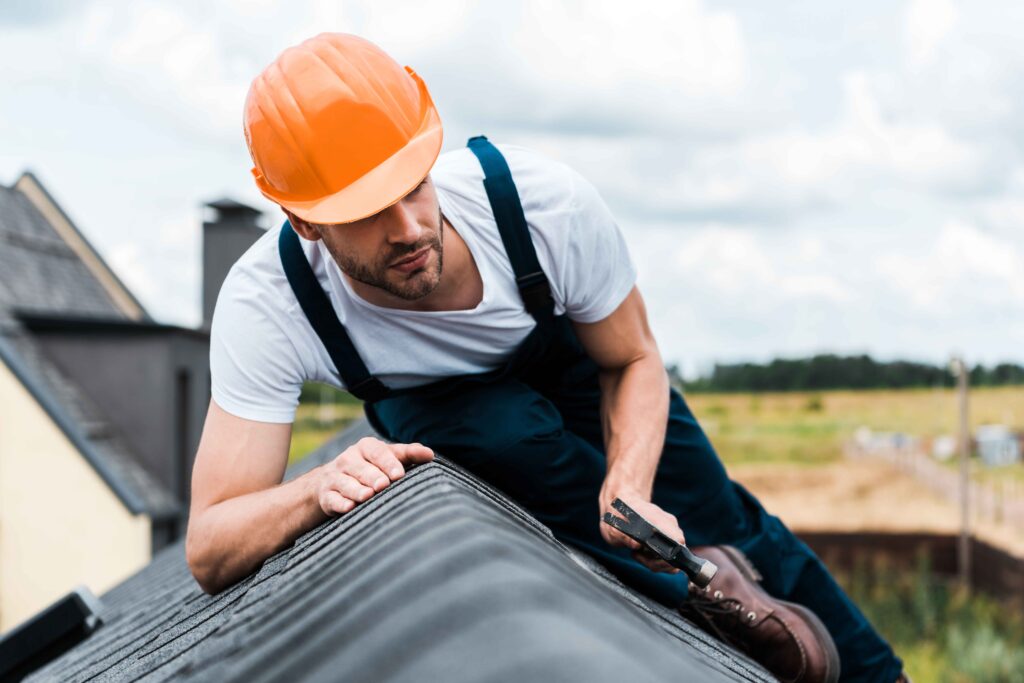
Web Ratings and Reviews
When selecting a professional roofing company for inspection in North Carolina, it’s essential to consider credibility factors like customer reviews and ratings. Litespeed Construction in Asheville, NC, has built a strong reputation with consistently high ratings on platforms like Google Reviews, highlighting their commitment to quality service. Known for their expertise in handling roofs specific to North Carolina’s unique climate, Litespeed Construction stands out as a trusted choice with extensive experience and positive customer feedback across multiple review sites
FAQs about Roof Leaks
Immediately. Delays can lead to mold growth and structural damage.
Coverage depends on the cause. Policies often cover sudden damage but exclude general wear and tear.
Regular maintenance, gutter cleaning, and inspections are key to prevention.
Minor repairs range from $300 to $1,200, while replacements can cost $7,000–$15,000.
DIY is possible but not recommended for extensive leaks due to safety risks.
Twice a year, ideally in spring and fall, plus after severe weather events.
Damaged shingles, clogged gutters, poor flashing, and roof age are common causes.
Only a few days; water intrusion can quickly cause serious structural damage.
No, minor leaks often only need localized repair if the roof is in good condition.
Yes, flat roofs are more susceptible to water pooling, which increases leak risks.
Roof Leak Guide
This guide on what to do if your roof starts leaking can help homeowners in Asheville, NC, and beyond protect their investments with timely, well-informed action. Proper identification, documentation, and collaboration with professional roofers will ensure that your home remains safe and dry, no matter the season.
